Focus
Your Present Location: HOME> Focus-
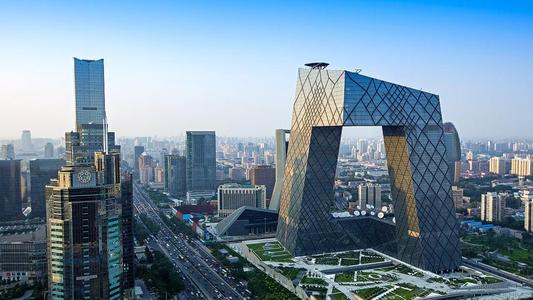
Peter Koenig: China moving forward peacefully into new future
On Jan 25, during the first session of the virtual World Economic Forum, President Xi Jinping stated clearly China’s agenda was to move forward in the world of great change, with a renewed policy of multilateralism aiming for a multi-polar world, where nations would be treated as equals.
2021-02-02 -
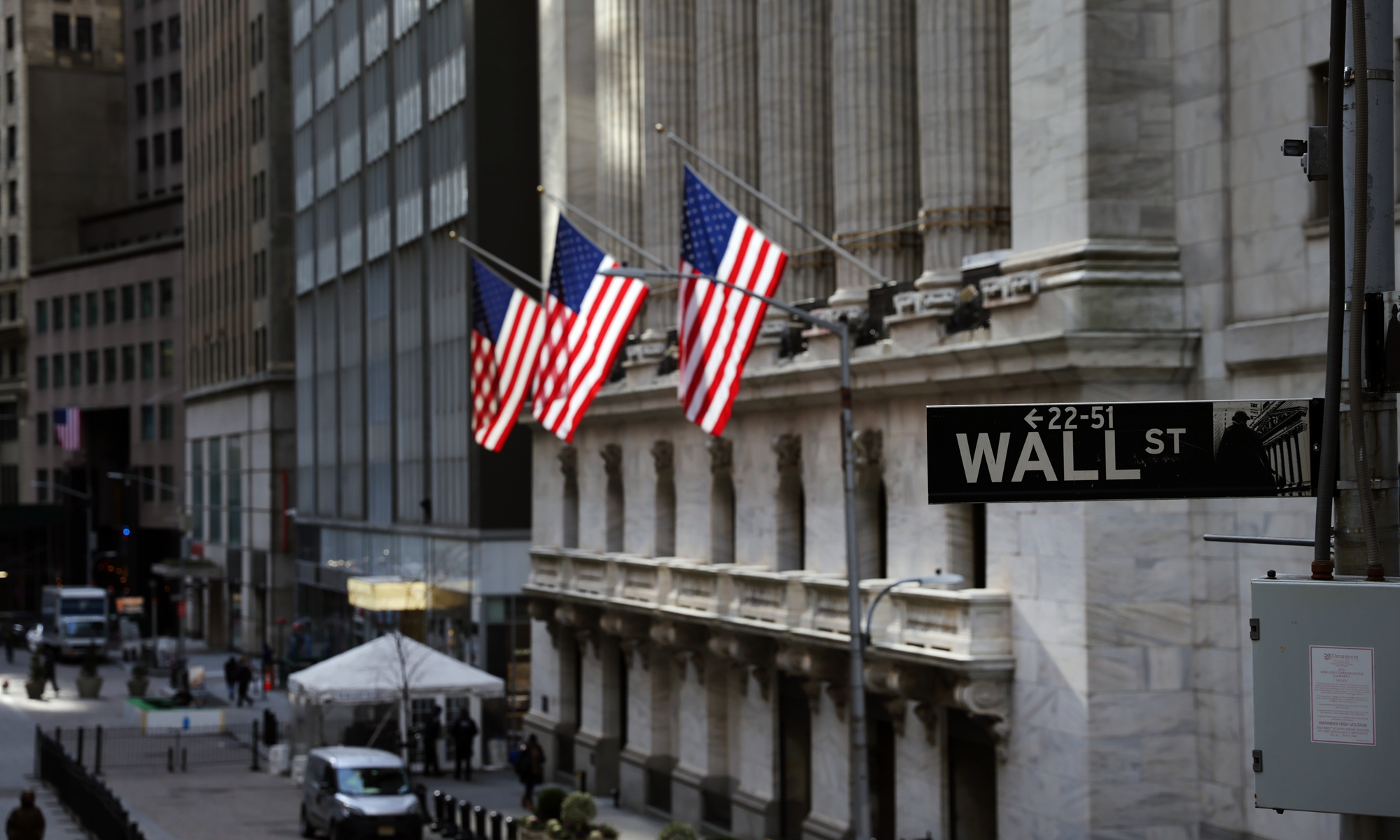
Ultra-loose policy fuels GameStop saga, indicating extension of disruption in economic spheres into capital market: analysts
Market split over whether correction brewing in US stocks
2021-02-01 -
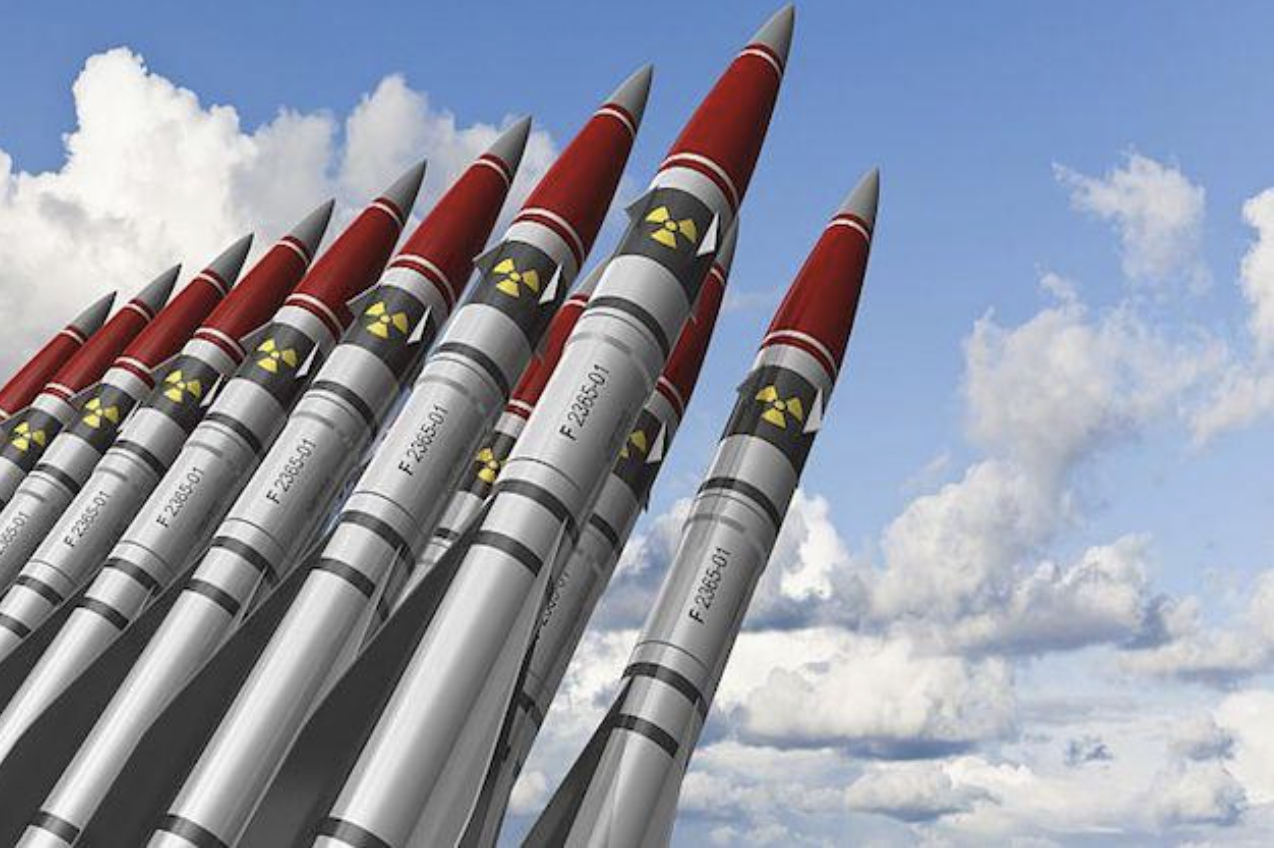
Vijay Prashad: World's nuclear powers unmoved on disarmament
On Friday, January 22, 2021, the Treaty on the Prohibition of Nuclear Weapons (TPNW) became international law for the 122 states who signed the agreement in July 2017. The TPNW, as with most treaties, is summed up in one sentence (article 1a): "Each State Party undertakes never under any circumstances to Develop, test, produce, manufacture, otherwise acquire, possess or stockpile nuclear weapons or other nuclear explosive devices." There is no complexity here. This is a treaty to ban nuclear weapons.
2021-02-01 -
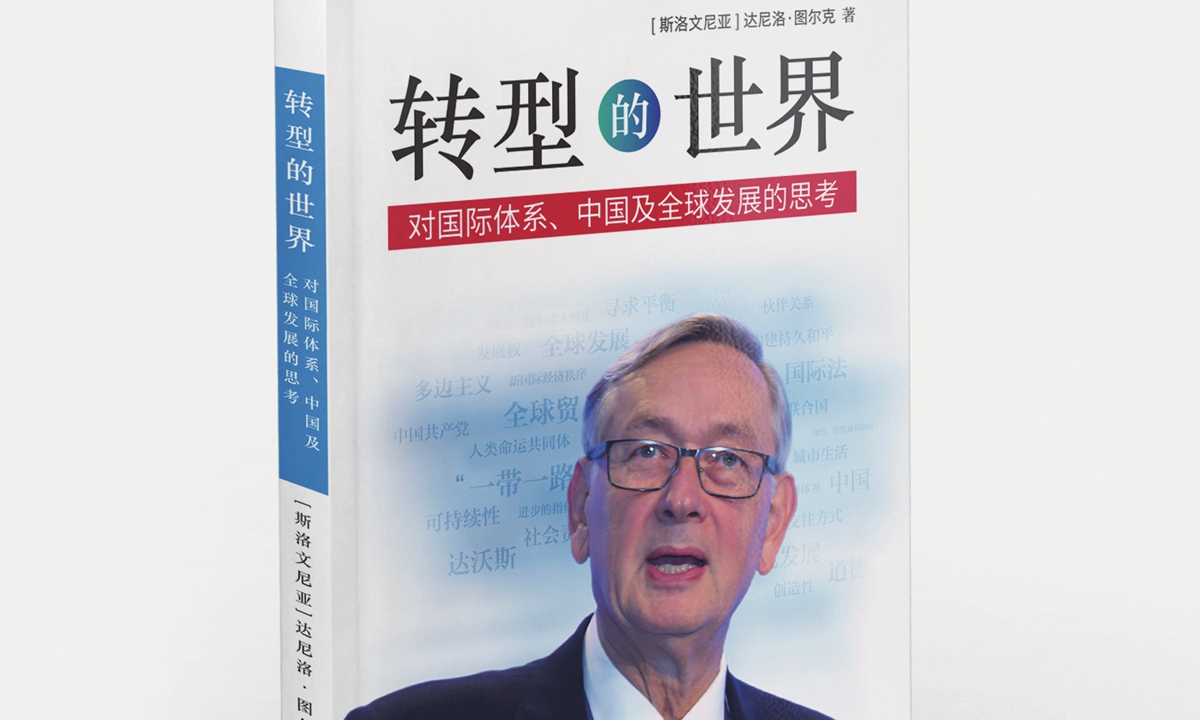
A world transformed explored in new book
In his book "A World Transformed: Reflections on the International System, China and Global Development," former president of Slovenia Danilo Türk discusses how to better deal with global challenges amid great changes that are engulfing the world. What can be done to move international cooperation across all sectors to new levels of performance? What role can China play? To address these questions and more, the Chongyang Institute for Financial Studies at Renmin University of China hosted a Webinar themed on "China and the world at the time of great change" Saturday. It also launched the Chinese edition of Türk's book. Below is part of Türk's talk at the webinar, as well as remarks by other key speakers.
2021-02-01 -
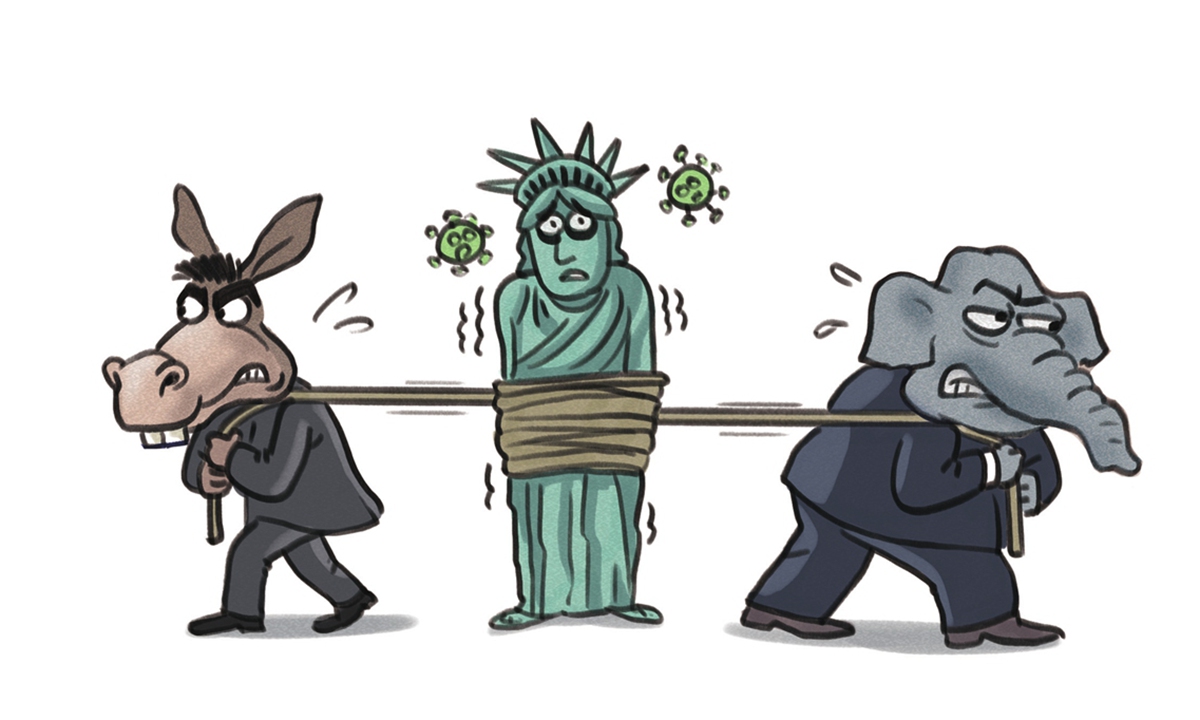
Ding Gang: Can ‘melting pot’ unite a polarized US?
The word most spoken by the new US President Joe Biden after his election victory is probably "Unity." This reminds me of the post-"9/11" era in the US.
2021-01-28 -

Private-sector banks in China start to sell deposit products on their own platforms
As the financial arms of Chinese technology giants including Ant Group, JD Digits and Didi Financial Services reportedly stopped offering deposit products, even for existing clients, domestic private banks have started to transfer these products to their own platforms.
2021-01-28 -
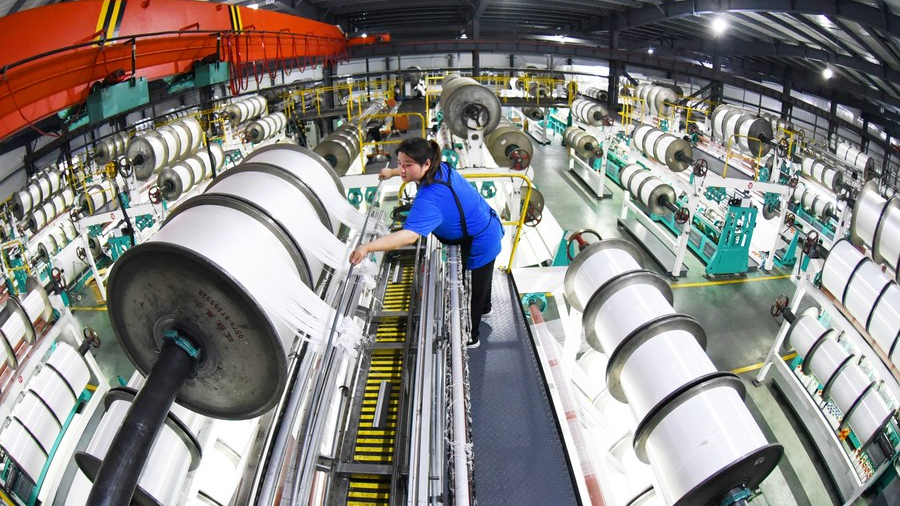
He Weiwen:Three crucial pathways to restoring economic growth in 2021
The Davos Agenda, an ongoing virtual event hosted by the World Economic Forum (WEF), focuses on restoring global economic growth and rebuilding trust amid the most disastrous pandemic in a century and the worst recession ever seen since the end of World War II.
2021-01-28 -
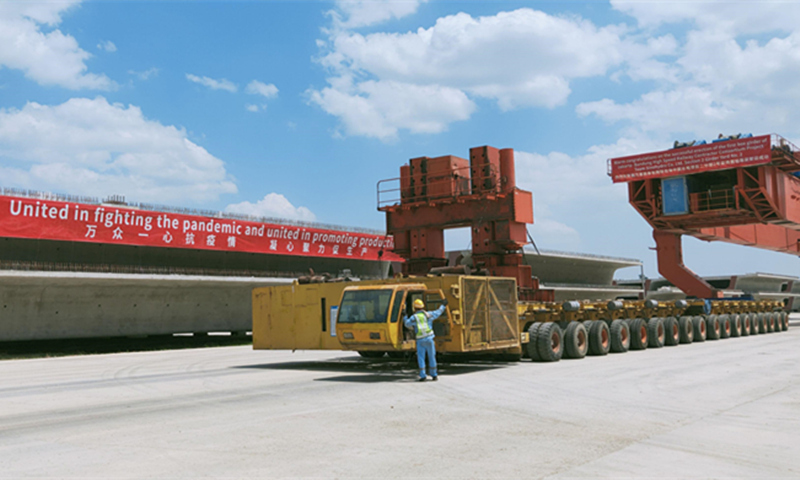
BRI contributes global post-pandemic recovery
The Belt and Road Initiative (BRI) will contribute to the global economic rebound by stabilizing supply chains among countries along the BRI route, while laying the foundation for further global cooperation, experts said ahead of opening of the World Economic Forum (WEF) in Davos, Switzerland, which will discuss a series of topics surrounding how to restore economic growth in 2021 after a coronavirus-triggered recession across the globe last year.
2021-01-27 -
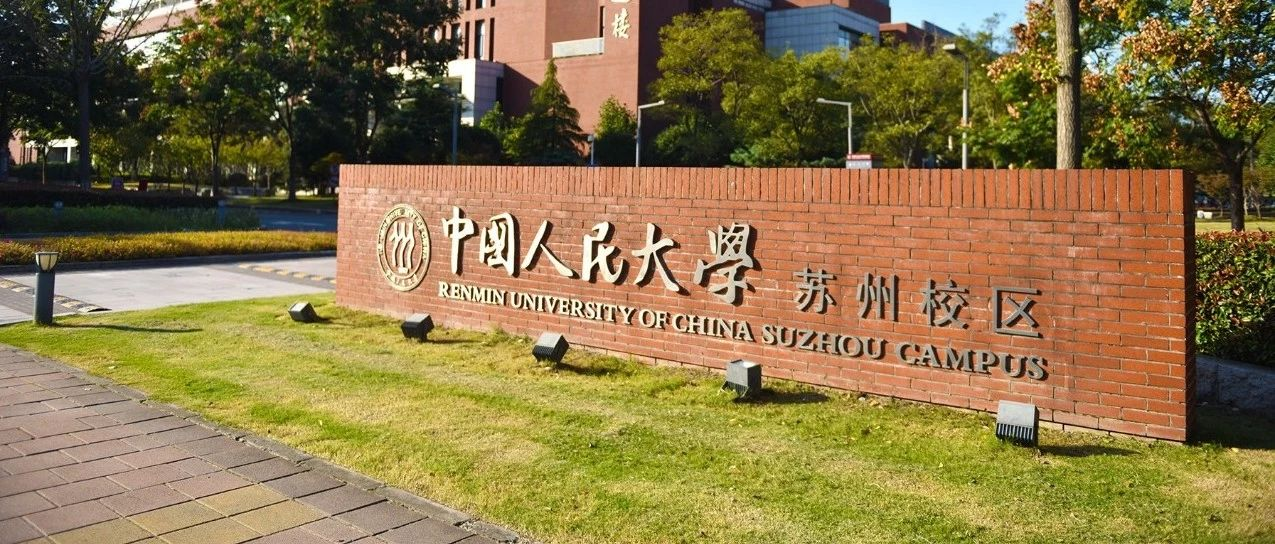
Renmin University Silk Road School 2021 Application Opens
The Master of Contemporary Chinese Studies is a key measure by Renmin University of China (RUC) to actively support the Belt and Road Initiative (BRI) in education.
2021-01-26 -
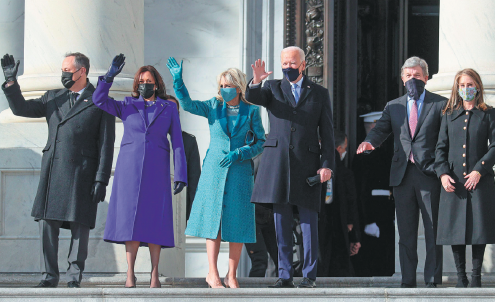
China-US relations expected to improve
Analysts see reason for hoping positive changes are ahead
2021-01-25 -
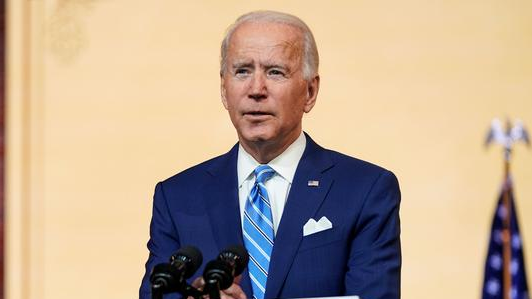
William Jones: Biden introduces relief plan as congress begins Trump 'show trial'
A sense of reality has entered into the political scene in Washington as President-elect Joe Biden presented a $1.9 trillion plan for fighting COVID-19, sending relief to the battered U.S. economy. This occurs just days after the Democratic Congress, eager to get revenge for four years of President Donald Trump, whom most representatives never accepted as being duly elected by the American people, are putting on what can only be characterized as a "show trial."
2021-01-25 -
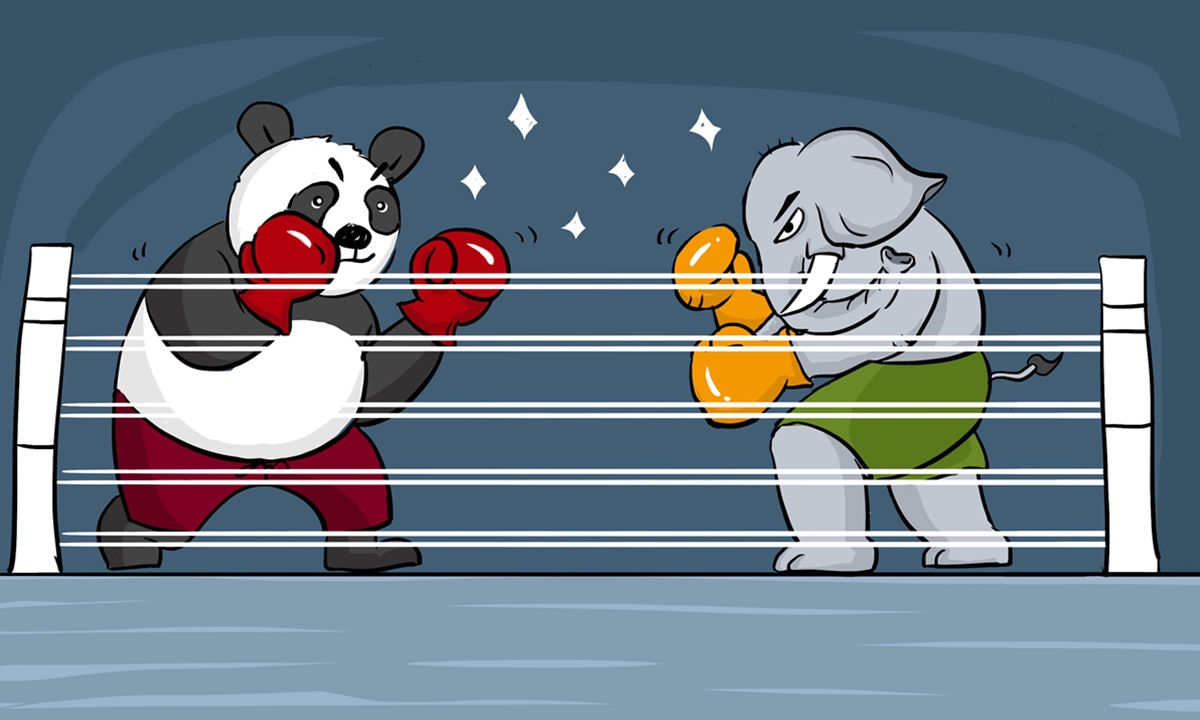
Liu Zongyi: Economic policy revision more important than boasting about India’s recovery
Since the India drug regulator's hastened approval of its COVID-19 vaccine over the weekend, market confidence in the South Asian country has clearly been shored up, with some analysts even appearing to be overly optimistic.
2021-01-22 -
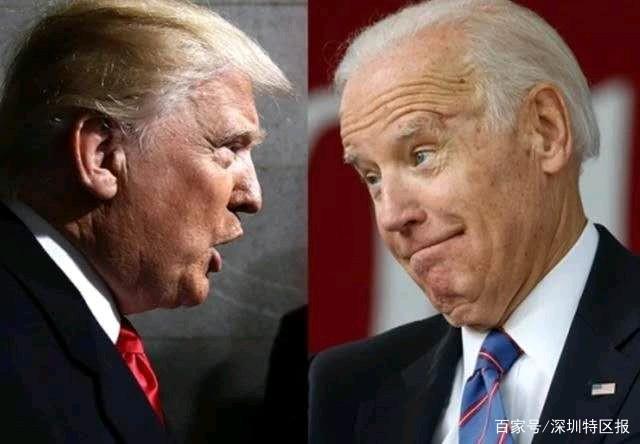
Zhao Minghao: Impact of ‘Trumpism’ on US constitutionalism, democracy dies hard
To prevent Joe Biden from successfully taking office as the next president of the US on January 20, US President Donald Trump and some Republican lawmakers are planning to roll the dice on odds. They want to challenge Biden's win when the Congress gathers to certify the Electoral College vote on Wednesday.
2021-01-21 -
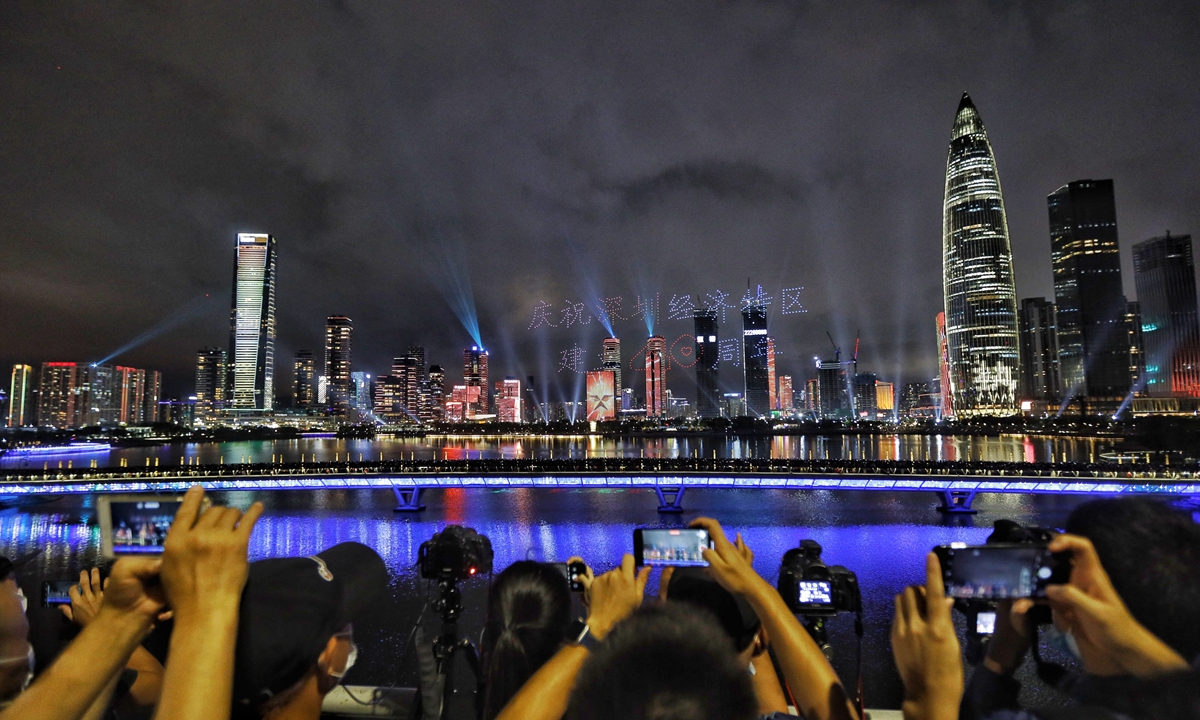
Liu Zhiqin: Antitrust Effort for Level Playing Field
What the Internet giants do is to extract money from both sides, buyers and sellers, which is virtually the horizontal and vertical monopoly agreements defined as one of the monopolistic conducts in the law.
2021-01-20 -
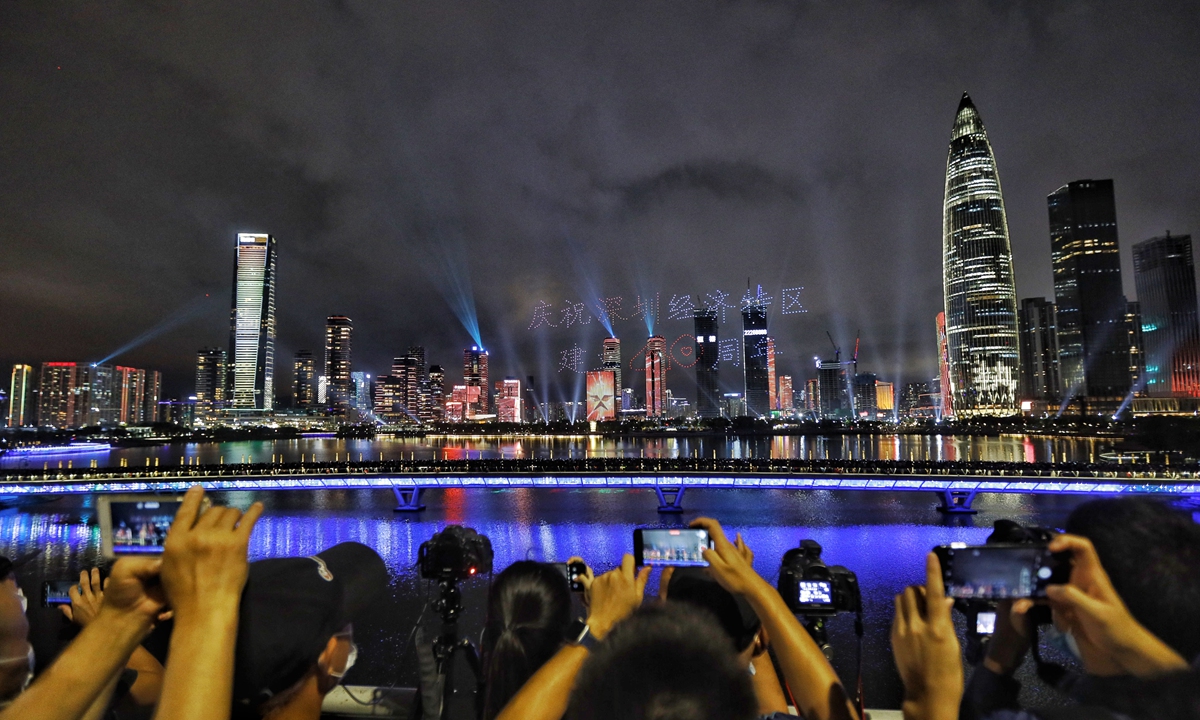
Liu Zhiqin: Antitrust Effort for Level Playing Field
What the Internet giants do is to extract money from both sides, buyers and sellers, which is virtually the horizontal and vertical monopoly agreements defined as one of the monopolistic conducts in the law.
2021-01-20 -
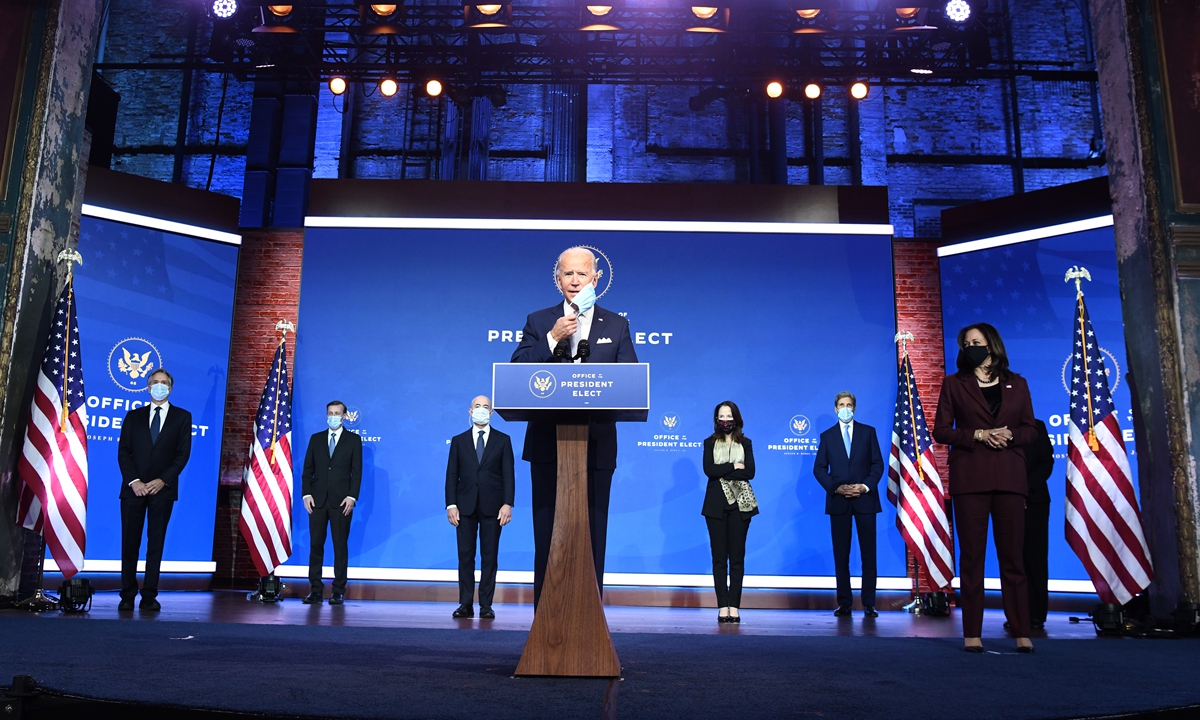
Wang Wen: Discarding illusion, Chinese view US as it is
US president-elect Joe Biden is waiting for the Senate to confirm his advisors and cabinet nominees - particularly those involved in key positions. Packed with diplomatic and security elites who are familiar with China, the new cabinet has an unprecedented understanding of China.
2021-01-19 -
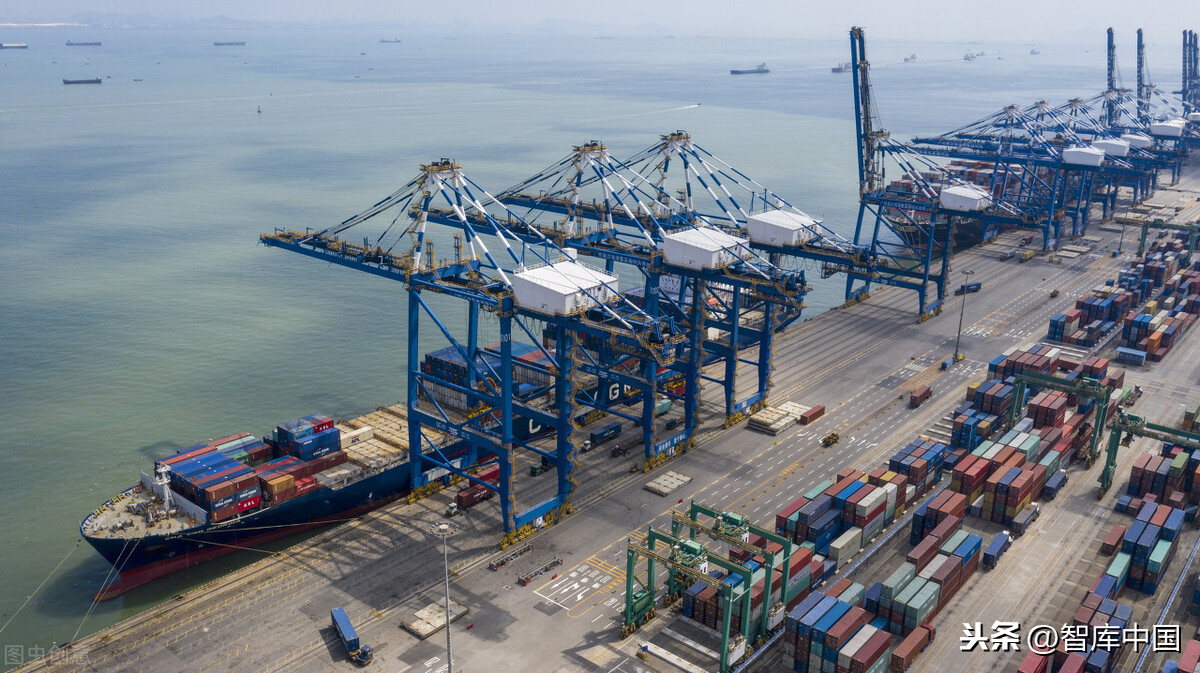
China's new foreign investment review rules take effect, bringing country more in line with global practices
China's new rules on foreign investment security reviews, unveiled last month, took effect on Monday. The move, coming against the backdrop of the Trump administration's groundless curbs targeting Chinese firms, is seen as a crucial regulation in the new round of high-level opening-up.
2021-01-19 -
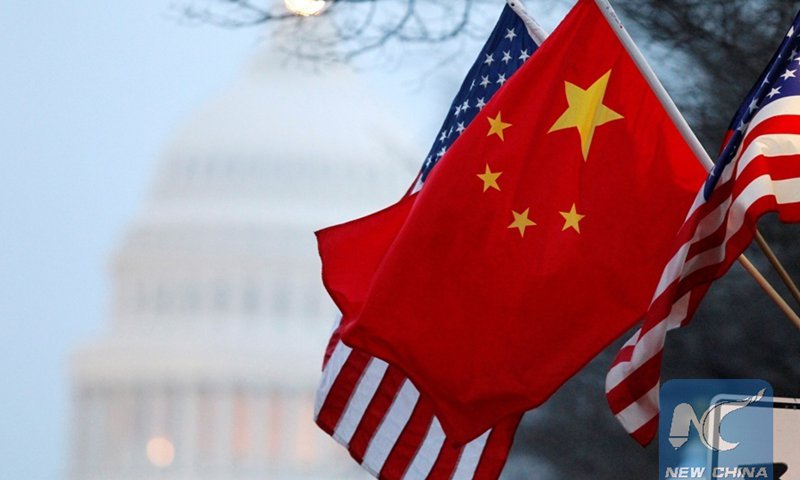
One year since trade agreement, positive signs emerge for China-US ties ahead of US power transfer
"I can't speculate on how officials would establish contact, but the direction is that both sides will have to find a way to manage differences and pursue cooperation," He Weiwen, a former senior trade official and a senior fellow of the Chongyang Institute for Financial Studies at the Renmin University of China, told the Global Times on Thursday, noting that talks could start with the progress of the phase one deal and remaining tariffs.
2021-01-15 -
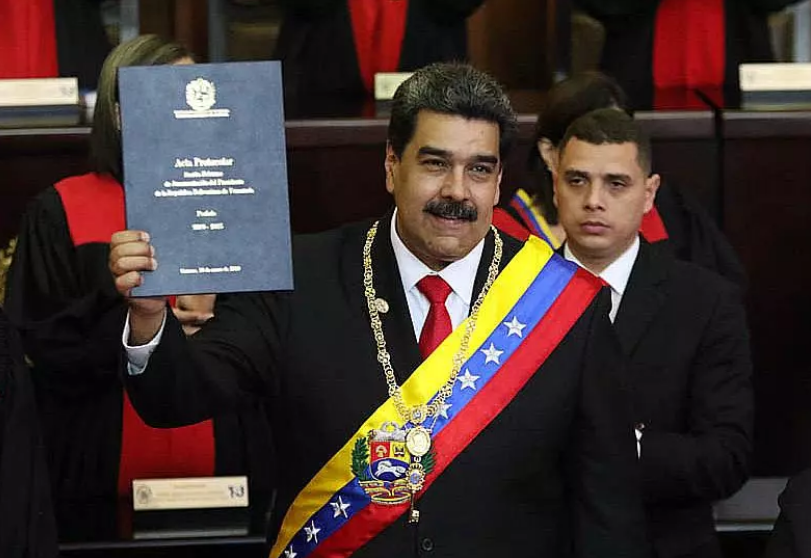
Vijay Prashad: How a Lawbreaking International Coalition Failed to Overthrow Venezuela’s Government
On January 5, 2021, the newly elected National Assembly took its seats in Venezuela’s capital. That day the Lima Group released a statement most of its members signed saying that they did not recognize the legality of the assembly. They called upon countries around the world to “disregard” the assembly and to recognize instead the leadership of a former member of the assembly, Juan Guaidó. The Lima Group felt that it was appropriate for its signatories to call for a “transition process” inside Venezuela; in other words, the Lima Group affirmed its mission, which is to overthrow the government of Venezuela’s President Nicolás Maduro and the Bolivarian Revolution.
2021-01-14 -
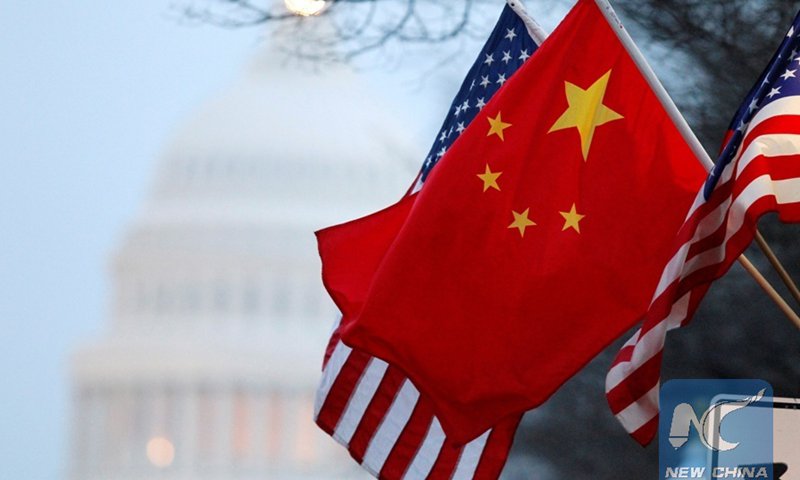
A $2,500 Book on U.S. Decline Is Suddenly a Must-Read in China
After chaos engulfed the U.S. Capitol last week, some Chinese intellectuals found themselves searching for copies of an out-of-print book to make sense of events. “America Against America” forecast the U.S.’s decline due to domestic conflicts more than 30 years ago.
2021-01-14
























































































 京公网安备 11010802037854号
京公网安备 11010802037854号





